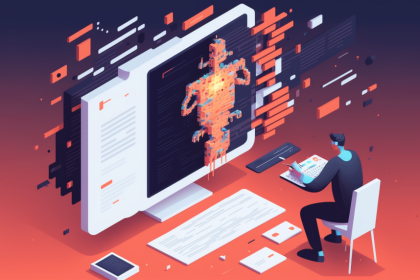As the sun rises on a new era in computing, quantum computing is casting its light on the software development landscape, promising unprecedented leaps in processing power and problem-solving capabilities. This article will explore the world of quantum computing, its potential impact on software development, and the challenges it presents for developers and organizations alike.
The Quantum Revolution
Quantum computing relies on the principles of quantum mechanics, a branch of physics that governs the behavior of subatomic particles. Unlike classical computers, which use bits that can represent either a 0 or a 1, quantum computers use qubits, which can exist in multiple states simultaneously, thanks to a phenomenon called superposition. This unique property allows quantum computers to perform complex calculations exponentially faster than their classical counterparts, much like the way Neo from “The Matrix” was able to bend the rules of reality and perform seemingly impossible feats.
The potential applications of quantum computing are vast, ranging from cryptography and drug discovery to optimization problems and artificial intelligence. As quantum computing becomes more accessible, it is expected to bring about a paradigm shift in software development, enabling developers to tackle problems that were once considered unsolvable.
Implications for Software Development
The dawn of quantum computing heralds several significant changes for the software development landscape:
- New programming languages and frameworks: As quantum computers operate on fundamentally different principles from classical computers, they require new programming languages and frameworks to harness their power. Developers will need to familiarize themselves with quantum programming languages, such as Q#, and quantum software development kits (SDKs) to create applications that can leverage quantum computing capabilities.
- Enhanced problem-solving capabilities: Quantum computing has the potential to revolutionize the way developers approach complex problems, such as optimization, cryptography, and artificial intelligence. With the ability to process vast amounts of data and perform calculations at unprecedented speeds, quantum computers can help developers create more efficient and powerful applications.
- Disrupting existing technologies: As quantum computers become more prevalent, they may disrupt various industries and technologies, such as cryptography, which relies on the difficulty of factoring large numbers. Developers and organizations will need to adapt their software and systems to ensure they remain secure and relevant in a post-quantum world.
Challenges and Roadblocks
Despite the enormous potential of quantum computing, several challenges and roadblocks must be overcome before it can be widely adopted:
- Hardware limitations: Quantum computers are still in their infancy, and building a practical, scalable quantum computer remains a significant challenge. Qubits are highly susceptible to errors and environmental factors, requiring sophisticated error correction techniques and advanced cooling systems to maintain their stability.
- Limited accessibility: Quantum computing resources are currently limited and expensive, making it difficult for most developers and organizations to access and experiment with quantum computers. However, cloud-based quantum computing services, such as IBM’s Quantum Experience and Amazon’s Braket, are making quantum computing more accessible to developers.
- Skill gap: The specialized knowledge required to develop quantum applications creates a skill gap that must be addressed through education and training initiatives. Developers will need to learn new programming languages and frameworks, as well as the underlying principles of quantum mechanics, to harness the full potential of quantum computing.
- Integration with existing systems: Integrating quantum computing capabilities into existing software systems and workflows presents another challenge for developers. Organizations must evaluate and update their existing software infrastructure to accommodate the unique requirements of quantum computing.
- Ethical considerations: Quantum computing has the potential to disrupt many aspects of modern life, and with this potential comes ethical considerations. The power of quantum computing could be used for malicious purposes, such as breaking encryption and undermining privacy. Developers, organizations, and governments must work together to establish guidelines and regulations to ensure that quantum computing is used responsibly and ethically.
Preparing for the Quantum Age
As the dawn of quantum computing approaches, developers and organizations must adapt and prepare for the challenges and opportunities it presents. Here are some steps that can be taken to ensure readiness for the quantum age:
- Stay informed: Keep up to date with the latest advancements in quantum computing, including new hardware, programming languages, and frameworks. This will allow developers to be at the forefront of the quantum revolution and capitalize on the opportunities it presents.
- Invest in education and training: Organizations should invest in education and training initiatives to equip their developers with the necessary skills and knowledge to work with quantum computing technologies. This includes learning quantum programming languages, understanding the principles of quantum mechanics, and gaining experience with quantum SDKs.
- Experiment with quantum computing resources: As quantum computing resources become more accessible, developers should experiment with these technologies to gain hands-on experience and develop a deeper understanding of their potential applications. Participating in quantum computing hackathons, workshops, and online courses can be a great way to get started.
- Develop a quantum strategy: Organizations should develop a long-term quantum strategy that outlines how they plan to leverage quantum computing technologies in their software development processes. This may involve updating existing software systems, investing in new hardware, and identifying potential use cases for quantum computing within the organization.
- Engage with the quantum community: Developers and organizations should actively engage with the quantum computing community by attending conferences, participating in online forums, and collaborating with other developers and researchers. This will help to foster innovation, drive the development of new quantum technologies, and ensure that the ethical implications of quantum computing are considered.
As the sun rises on the quantum age, developers and organizations must be prepared to embrace the potential of quantum computing and navigate the challenges it presents. By staying informed, investing in education and training, and developing a comprehensive quantum strategy, they can ensure that they are ready to harness the power of quantum computing to revolutionize the software development landscape.










